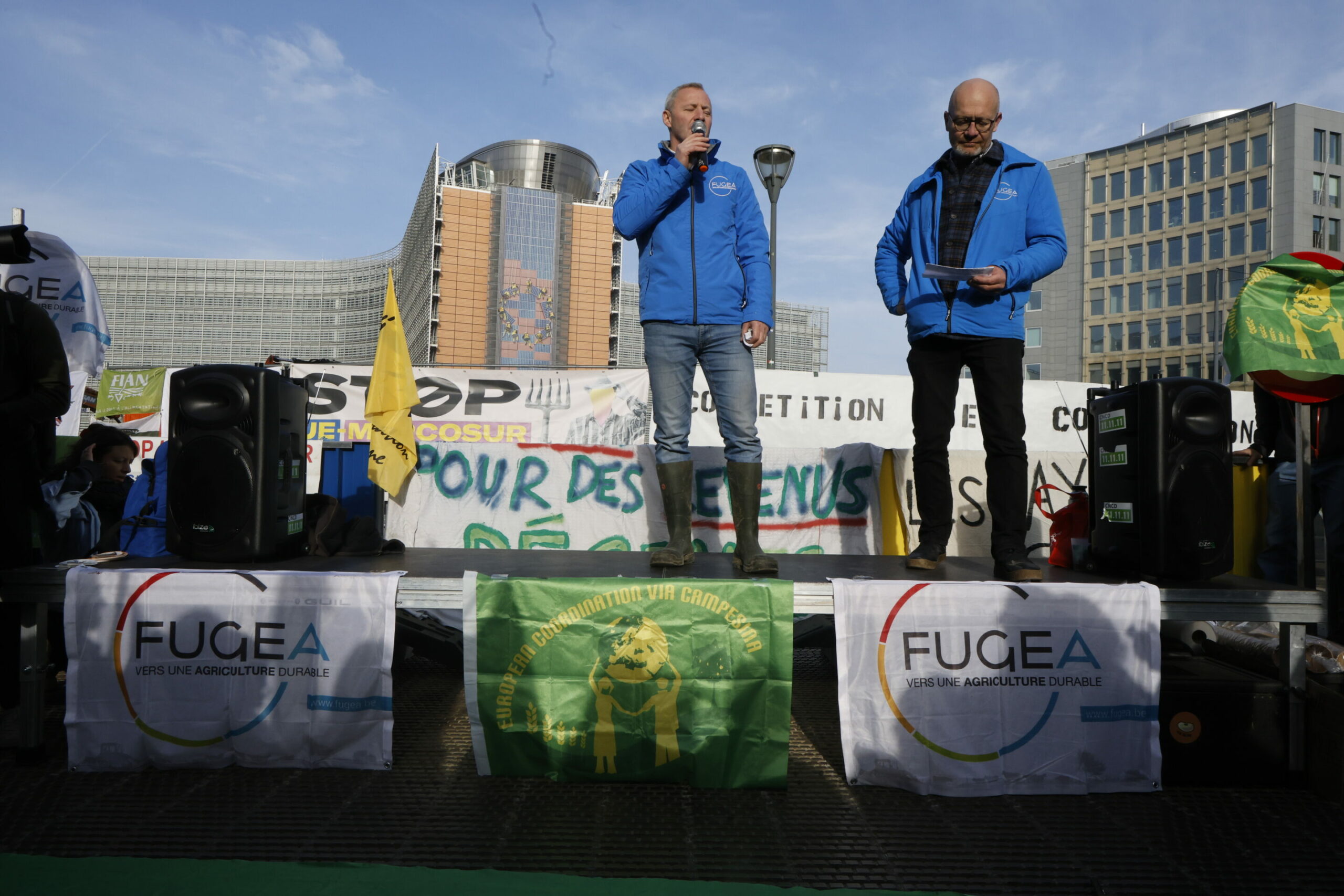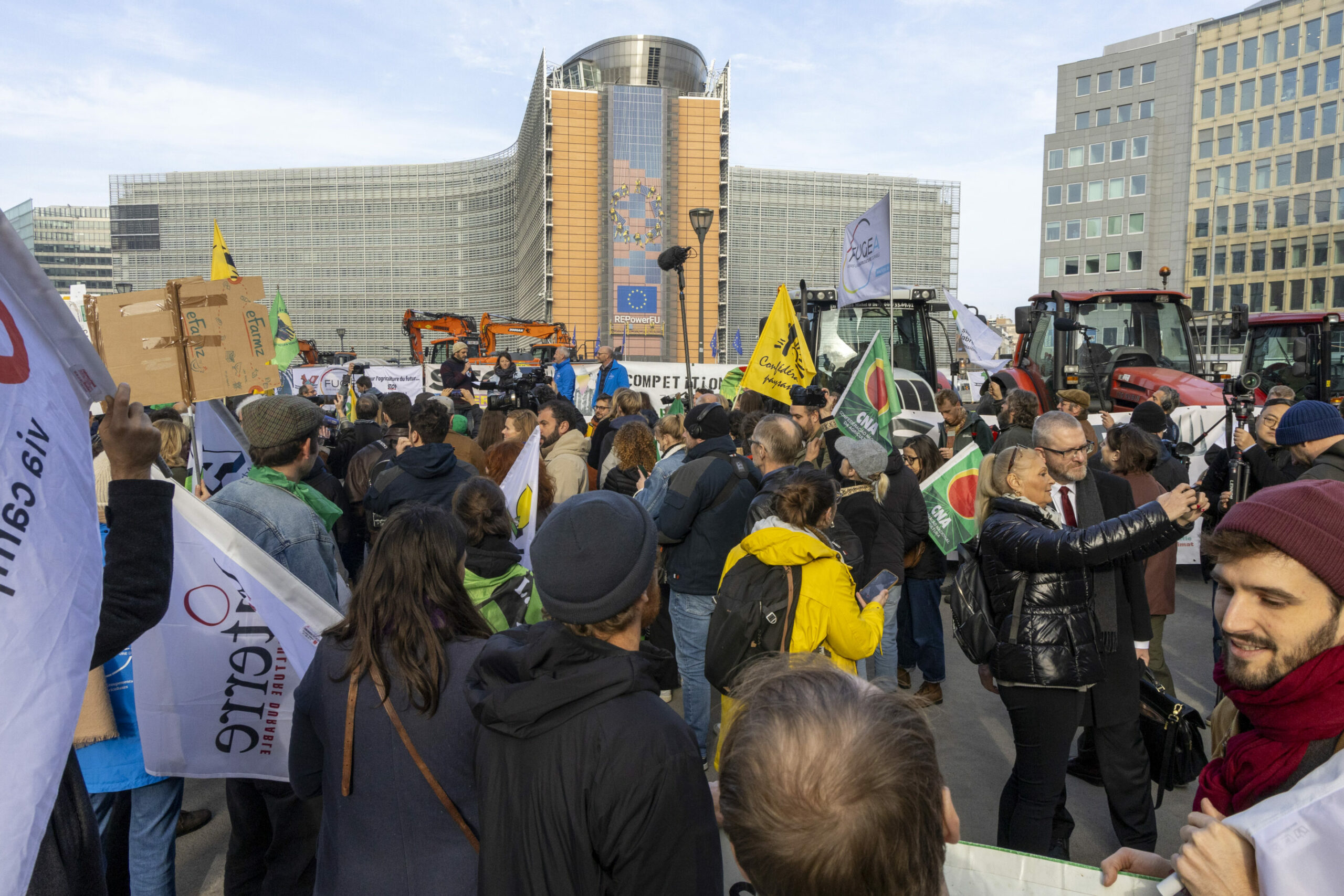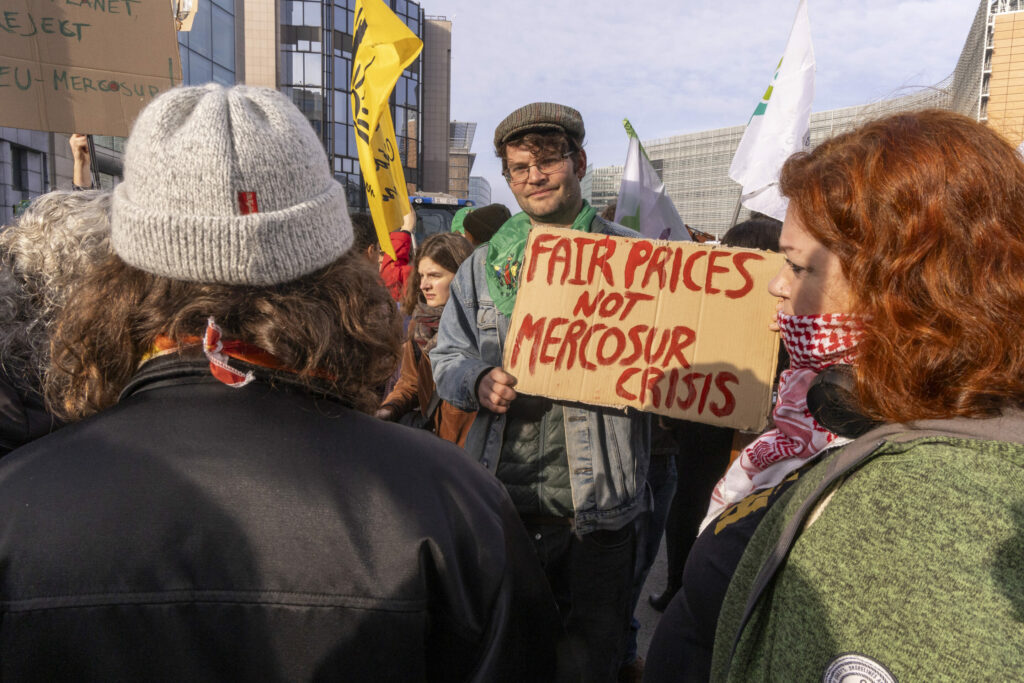Belgian farmers have warned that the signing of a controversial trade deal between the EU and Mercosur countries would cause farmers' anger to "explode again", reigniting the kinds of protests seen in Brussels at the beginning of the year.
Farmers from Belgium and elsewhere in the EU gathered in Brussels on Wednesday as part of a demonstration against the EU-Mercosur agreement, which would remove tariffs on most products traded between the EU and Mercosur countries (Argentina, Brazil, Paraguay and Uruguay).
EU farmers are concerned about more agricultural products being imported from Mercosur to the EU, particularly beef. They fear that cheap products – which are not subject to the same requirements as those imposed on European producers – will flood the European market and create unfair competition.
The protest in Brussels, led by Walloon farming association Fugea, comes just ahead of the G20 summit in Brazil on 18 and 19 November where it is expected that there will be a push to get the EU-Mercosur deal over the line.
'We don't need' South American produce
Speaking to a crowd of around 100 demonstrators who gathered at the Schuman Roundabout in the EU quarter, Fugea spokesperson and Walloon farmer Huges Falys demanded that Mercusor negotiations be stopped.
“These South American products, we don't need them. We have very high standards, we respect them, we accept them, we're aware that they're important and it's a demand from society and consumers. We can no longer compete with other companies that don't meet these standards and that aren't subject to the same economic, environmental and social constraints," he said.

Speeches are held at a protest action of various European farmers associations against the EU-Mercosur Trade Agreement, Wednesday 13 November 2024 in Brussels. Credit: Belga / Nicolas Maeterlinck
He warned that if Ursula von der Leyen's European Commission continued negotiations, and if the prospect of signing a deal was confirmed, "farmers' anger will explode again, as we saw at the beginning of the year".
Protests by European farmers earlier this year in Brussels denounced the EU-Mercosur deal, and expressed a general frustration with strict European environmental rules and the shrinking incomes of those working in the agricultural sector.
The protests caused major disruption, bringing the Belgian capital to a halt and sparking violent clashes with police.
“Most of our colleagues are out in the fields today sowing the crops that will feed you next year, harvesting the crops that were sown this spring," said Falys, who cautioned that if the EU-Mercosur deal remains on the table then "this winter, in the months to come, we'll be hearing a lot more about farmers".
EU-Mercosur agreement 'obsolete'
Speaking to protesting farmers on Wednesday, Belgian MEP Saskia Bricmont (Ecolo) said that the EU-Mercosur agreement, which was first conceived of in 1999, is "completely obsolete, negotiated on the basis of a mandate that dates back 25 years".
"Your mobilisation is crucial today to remind the European Commission that it's high time we moved on to something else, to move on from these free trade treaties, to move on to equitable partnerships, real partnerships. When we talk about partners, we're not talking about exploiting partners or having a negative impact on people and farmers, here or there," she said.
Farmers fear deal favours corporate interests
Anas, a Danish vegetable and livestock farmer protesting with international farming organisation La Via Campesina, told The Brussels Times that farming has become a career that is "a crazy amount of work for really not a good salary".
He believes that export agreements such as the EU-Mercosur trade deal "foster inequality among farmers" and favour big exporters rather than small local producers.
"We need to understand that food is not a commodity or a global market, it’s a basic human right, and instead of these free trade agreements we need to support local production and local markets, not production just for export," he said.

Farmers take the streets of the European quarters of Brussels city for a protest action against the EU-Mercosur Trade Agreement. Credit: Belga / Nicolas Maeterlinck
Irish fruit and vegetable farmer Fergal Anderson, of farming association Talamh Beo, said that international agreements should regulate markets to make them fairer, rather than focusing on creating competition.
"We’re seeing declining farmer incomes, we’re seeing a declining quality of life for rural dwellers living off the land, and I think that’s a consequence of a lot of these free trade agreements. They don’t put citizens at the centre, they're putting corporate interests first. It's the strategy of expanding into other markets for corporations, rather than building solidarity between people across regions between the EU and Mercusor," he said.
No traffic disruption
While Brussels police had initially warned of traffic disruption throughout the capital on Wednesday, there was little disturbance caused by the demonstration.
Around forty farmers from across Europe joined the crowd, alongside representatives from the Réseau de Soutien à l'Agriculture Paysanne (RéSAP) and the coalition Stop UE-Mercosur.
Several MEPs also attended, including Saskia Bricmont (Ecolo), Benoit Cassart (MR), and French socialist Martine Aubry (PS).

